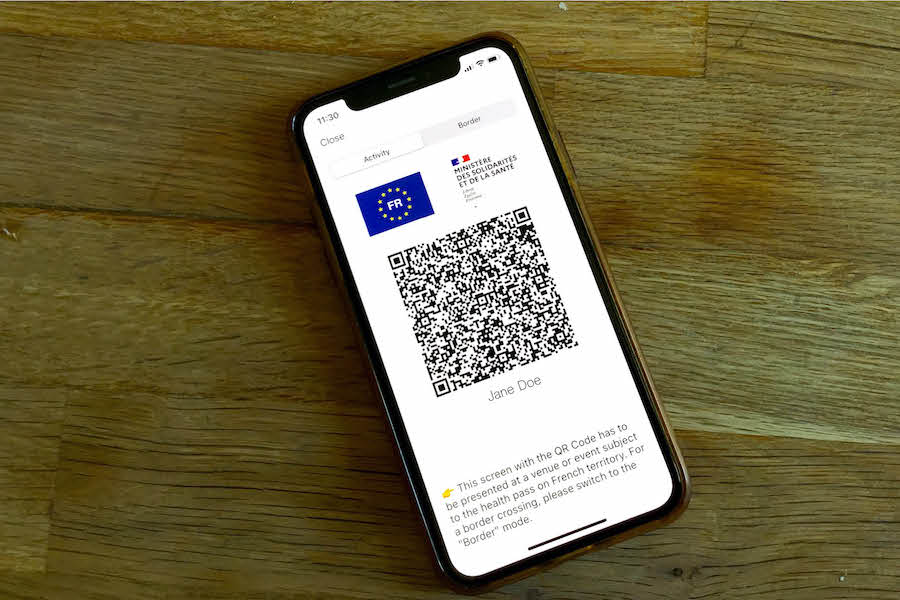The French government has announced that the public must show a valid health pass at bars, restaurants and on long-distance plane, train and bus travel from 9th August.
Just four days after the controversial law was passed in the parliament, making a health pass mandatory for access to many venues around France, a date has been set for enforcement.
Government spokesperson Gabriel Attal announced on Wednesday afternoon that as of 9th August, health passes will be asked for at restaurants and bars as well as for travel on long-distance bus, airplane and train trips. This decision is subject to one final hoop, approval by the Constitutional Council, which is due to respond by 5th August.
“The extended health pass will come into effect with, in the beginning, a period of adaptation, of tolerance, of pedagogy, of roughly one week,” Attal said at the press conference.
The public has known this was coming since President Emmanuel Macron addressed the country on 12thJuly, saying health passes will become mandatory “the beginning of August.”
The pass has been required in leisure and cultural venues such as theatres, cinemas, museums, monuments, public swimming pools, concert halls, festivals and leisure centres with more than 50 people since 21st July.
Transportation Minister Jean-Baptiste Djebbari has provided some details about how the health pass will work for those travelling by train.
“For internal flights, and for long-distance trains, meaning TGVs, intercités and night trains, you will need to show a health pass,” Djebbari said, adding that controls will be carried out in stations, before and after travelling, but there will also be random checks on board the trains.
“We’re going to try to do it in the most fluid and operational way possible in order to have a good rate of checks, and at the same time avoid making passengers’ lives difficult,” Djebbari said. He added there would not be “systematic” checks, “in the same way that, during the curfew, there were not systematic checks on people who were going out.”
Passengers who test positive before travel will be reimbursed by SNCF, as will airline passengers by their respective airline companies. The current rule allows for cancellation up to 72 hours before travel, but this will be modified to allow for the new rule for the unvaccinated, stating a negative test must be presented 48 hours before the start of a trip.
Start date revealed for French health pass
